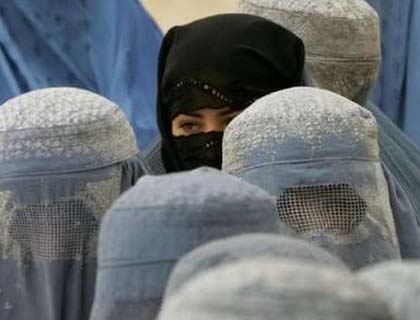Afghan society is a men-dominated society where men have the upper hand and almost all the decisions of family are made by men and women have very little right to have a say or meddle in the affairs of the family and oppose what has been decided by men. The parents are the decision makers of their sons and daughters, even if they are above the age of twenty. This is the parents who decide when is the time of their daughter or son to get married and who should be their life partner and there is no or very little involvement from the boys or girls themselves while getting married.
Early and forced marriages have accompanied Afghans since centuries and it seems like that this bad practice would continue to persist for longer periods of time in Afghanistan. It has been estimated that 49 countries have a significant child bride problem. Among those countries, a prominent one is Afghanistan where it is believed 70 to 80 per cent of marriages are before the marriage age of girls and boys or forced. Forced marriages are generally occurring because of family pride, the wishes of the parents, or social obligation.
Such marriages are usually accompanied with problems further in future life. The time to get married starts as soon as a person reaches the age of 15. It is the culture of Afghans that bachelor man would only marry a young girl who has not been married before. In most of the case there is huge difference between the ages of groom and the bride – brides are always younger than grooms.
This happens especially in cases where a man goes for a second wife and marries a bachelor woman after his previous wife dies or is divorced. There have also been cases where a girl under the age of 18 has been forced to marry a man aging 40.
The Afghan Constitution states: "Any kind of discrimination and privilege among citizens of Afghanistan is forbidden. Citizens of Afghanistan, men and women, have equal rights and responsibilities in front of the law." But unfortunately, forced and early marriages entrap girls and deprive them of their basic rights.
Amina who lives in capital Kabul is only about 14 but she is already engaged to man. She has never seen her fiancé except in the pictures. She says that her fiancé lives in abroad. "I came to know about my engagement after it was decided by my parents,'' she said. "This is not the age of being engaged or getting married but the time to get education.
I have tried to explain to my parents what I want but all in vain. Now it is matter of do or die." As mentioned earlier forced marriage has become a part of Afghan culture that is very hard to change in short span of time.
Marriages are used to settle debts or to strengthen family status through social alliances. Many parents who are economically weak prefer their girls to marry a rich man and difference of age or willingness of girls hardly matters. Also poor families consider a daughter as an economic burden and a big responsibility who must be married quickly to reduce the financial strain.
With the ongoing conflict in Afghanistan, many parents aim to marry their daughters at young ages to secure their futures. This has further made lives miserable for young girls who want to make a career than getting married.
In the SY 1390, there have 90 cases of self-immolation of women in Herat province only. The situation in other provinces seems to somehow resemble to that of Herat. Force and early marriages can be conceived a major reason behind women burning themselves and committing suicide. Some girls run away and get killed when captured.
According to "Factsheet: Early Marriage" (page 4), a report issued by the United Nations, these early marriage unions violate the basic human rights of these girls by putting them into a life of isolation, service, lack of education, health problems, and abuse.
The UNICEF paper states: "UNICEF believes that, because marriage under the age of 18 may threaten a child's human rights (including the right to education, leisure, good health, freedom of expression, and freedom from discrimination), the best way to ensure the protection of children's rights is to set a minimum age limit of 18 for marriage. UNICEF is opposed to forced marriages at any age, where the notion of consent is non-existent and the views of bride or groom are ignored, particularly when those involved are under age."
Looking at persistence of issues that come into being due to ignorance, one feels that this is not the 21st century for the people of Afghanistan. However, it is never too late to fix the issues. In Afghanistan, the media has never been as active as it is today and a bright future is expected for it.
The media can play a significant role in opening the minds of people in regards of early and forced marriages. There are around two dozens of TV channels and several FM radio channels that are active in Afghanistan. Already they are showing some good entertainment programs.
It would be a constructive work if they begin to focus more on changing the bad practices in the Afghan society. The Independent Human Rights Commission, Afghan Ministry of Women Affairs, Civil Societies and other organizations for women must do more to counter the problems. Democracy is quite a new process in Afghanistan. Bringing out solutions to the long-term issues of women will prove a good foundation for this process.

